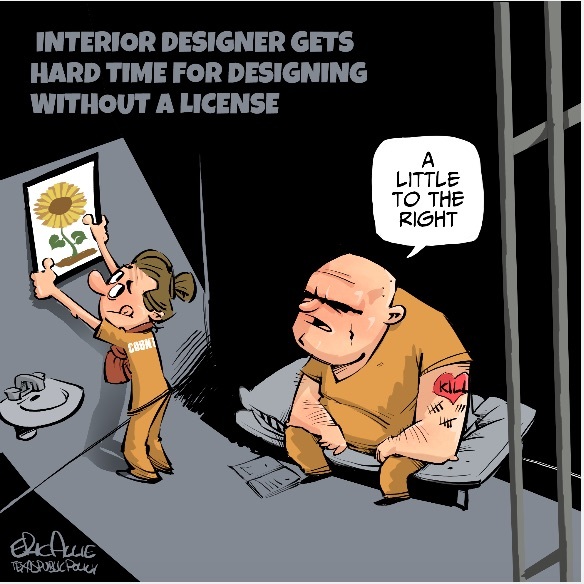“Few people ever have an abundance of choice of occupation. But what matters is that we have some choice, that we are not absolutely tied to a job which has been chosen for us, and that if one position becomes intolerable, or if we set our heart on another, there is always a way for the able, at some sacrifice, to achieve his goal”
These words by economist Friedrich Hayek hold insight for Texas.
In the Lone Star State, we understand the importance of freedom to get a job so that Texans have the best chance to prosper. But government barriers continue to keep too many Texans from reaching this goal that we, and Hayek, consider essential.
The most draconian of these measures is occupational licensing.

While it’s important that Texans’ health, safety, and welfare be protected, most licenses don’t achieve this and can do more harm than good.
Occupational licensing is rampant in Texas. Currently, the Texas Department of Licensing and Regulation (TDLR) has issued roughly 650,000 licenses across the state. This is far more than years past with the share of licensed occupations by governments quadrupling from 5 percent in the 1950s to 21.5 percent in 2017.
A feature of this increase is that Texas has added more than 20 licensed occupations between 1993 and 2012. Some legislators desire more licenses as one pre-filed bill or the upcoming session would license pecan buyers.
While licenses for hair braiders, shampooers, and eyebrow threaders have recently been repealed here, there’s more work to do.
A recent study by the Texas Public Policy Foundation notes that occupational licensing often just keeps people poor.
One cost is that a license acts as barriers to entry in an occupation preventing Texans from getting a permission slip to work at their desired job. Many workers, for whatever reason, don’t jump through these hoops—minimum training, fees, and exams.
With fewer workers able to join an occupation competition decreases, resulting in inflated wages to the tune of an average of 15 percent for those lucky to have that job. Proponents of licensing claim that this increase in wages indicates higher quality service, however, research doesn’t seem to support this notion.
In fact, a majority of studies find the effect of occupational licensing on the quality of work to be insignificant or lower quality. And occupational licensing costs tens of billions of dollars per year contributing to an estimated 20 percent lower job growth rate.
These adverse effects are particularly harmful to the poor, who often cannot afford the time and money to get the government’s permission slip.
Copious professions in need of licensing pose little to no danger to the public, such as cosmetologists and interior designers. Rather than have those wanting to work in these occupations go through an excessive process, their services could be examined through institutional order in a free market.
For example, online services like Yelp and Google now allow consumers to rate their experience and pass along information to future consumers. For other jobs where some certification may be necessary, a private association may give a certification or registration that’s monitored by the government.
Texas would do well to learn from Hayek’s wise words and let Texans flourish by getting a job and working towards their career aspirations.By reducing government barriers to opportunity while upholding Texans’ health, safety, and welfare through market-oriented reforms, Texans can prosper.
This brings up the key question that should be asked when licensing any occupation: Given markets work best, why mess with anything else?